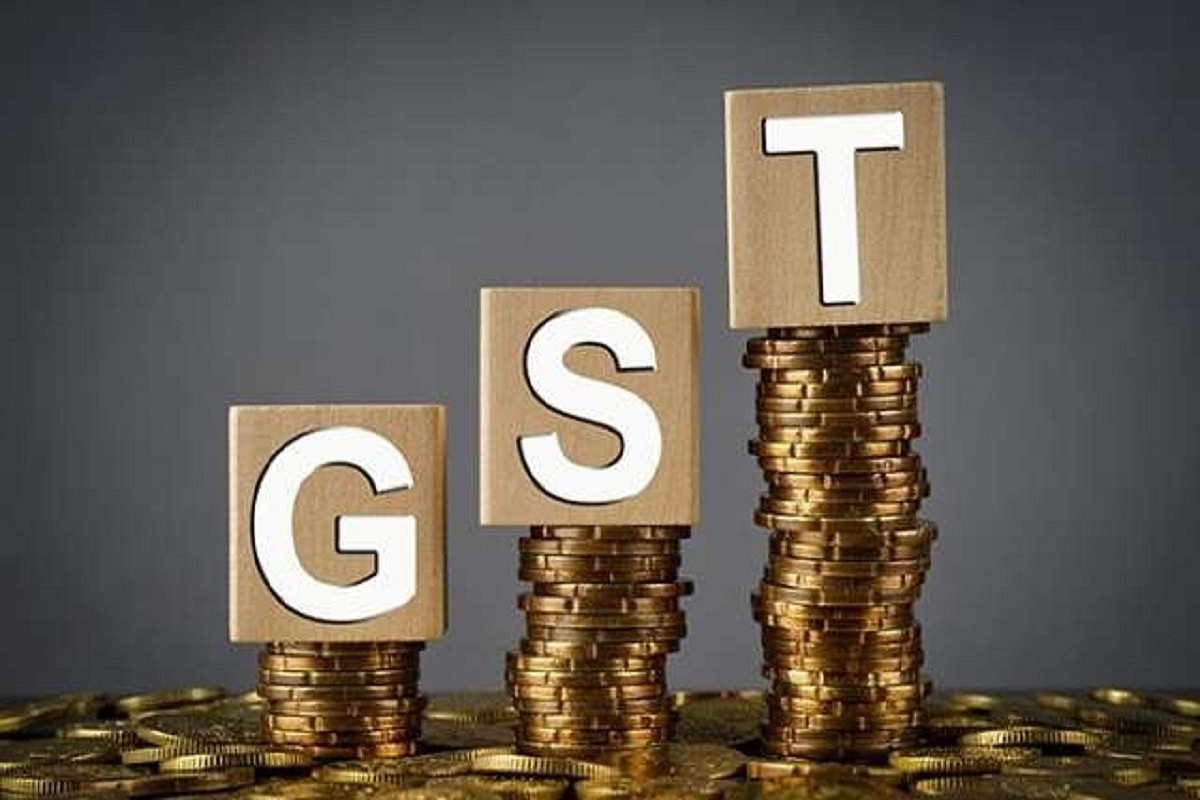Business
5 Years Of GST: What Are The Experts Saying
- Industry leaders are of the view that ‘one nation, one tax’ reform has certainly brought down barriers across the country and made doing business easy and effective for both businesses and taxpayers, the survey found.
- The GST regime has also positively affected the prices and costs of goods and services to end consumers, along with helping companies optimise their supply chains.

GST collections
Giving a thumbs up to the GST regime, around 90 per cent Indian CXOs across key sectors have backed this dynamic and technologically driven indirect tax regime, a survey by Deloitte India has found.
Industry leaders are of the view that ‘one nation, one tax’ reform has certainly brought down barriers across the country and made doing business easy and effective for both businesses and taxpayers, the survey found.
The GST regime has also positively affected the prices and costs of goods and services to end consumers, along with helping companies optimise their supply chains.
The survey, undertaken over a four-week period, involved online survey of 234 CXO and CXO-1 level individuals.
The study focused on assessing the impact of GST across sectors as the tax regime completed five years.
With the completion of half a decade of GST implementation in July, a majority of the industry professionals feel that overall input credit management vis-à-vis GST rules is one of the top issues faced in complying with the GST law.
Keeping track of the changing tax landscape and developments ranks as the other key challenge, especially by the consumer and MSME sector.
Within the GST law and its compliance, increased tax regulations and reporting demands from tax authorities topped the chart as main challenges, the report said.
Some ground still needs to be covered as far as implementation efforts go, especially to save one’s time and ease taxpayers’ burden during audit/investigation proceedings.
The foundation of the GST regime is based on technology. The introduction of GST gave a push to Indian companies to upgrade their technological infrastructure.
About 80 per cent leaders believe that the government has done well in automating tax compliances and 74 per cent believe that government should continue to work on simplifying the tax system to enhance the EoDB, according to the survey.
The automation of tax compliances has brought major synergies and efficiencies compared with the erstwhile regime, following the introduction of a ‘one-stop-shop’ portal (GSTN) to ensure compliances under GST.
Respondents also believe that the government's continued adoption of progressive concepts, such as e-invoicing and establishing GSTN (which is transcoded with advanced analytical tools to use taxpayer data), has resulted in positive outcomes for businesses and tax authorities. This move has increased transparency and helped control tax evasion in the country.
The launch of GST mandated coordination between tax experts and technology teams in introducing and tweaking ERP software as the GST rules keep updating.
Sixty per cent respondents stated that upgrading their technology is the most challenging aspect of revamping ERP systems. This is followed by existence of multiple systems and lack of a unified system, within organisations, confirmed 53 per cent industry experts.
As GST completes half a decade end of June, 59 per cent industry leaders applauded the government’s approach of proactively issuing instructions, clarifications, and streamlining processes. This move has helped avoid any unnecessary pile up of litigation and unending disputes, and it is hoped that this approach is followed in the future as well.
While automation of tax compliances emerged as the top area (80 per cent) where the government has helped, upgrading technology remains a key ask (with 61 per cent) requiring the government’s attention, the survey found.
In the future, 28 per cent leaders look forward to use high-level automation, with no manual interventions, in their businesses.
According to the survey, the industry looks forward to finding resolution to simplification of input tax credit matching, followed by reducing operational complexities for taxpayers.
Industry leaders also consider managing tax disputes and the absence of tribunal forums to resolve disputes as significant issues leading to serious long-term ramifications, the survey found.
Introducing ElectionsHQ + 50 Ground Reports Project
The 2024 elections might seem easy to guess, but there are some important questions that shouldn't be missed.
Do freebies still sway voters? Do people prioritise infrastructure when voting? How will Punjab vote?
The answers to these questions provide great insights into where we, as a country, are headed in the years to come.
Swarajya is starting a project with an aim to do 50 solid ground stories and a smart commentary service on WhatsApp, a one-of-a-kind. We'd love your support during this election season.
Click below to contribute.
Latest